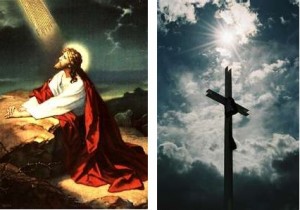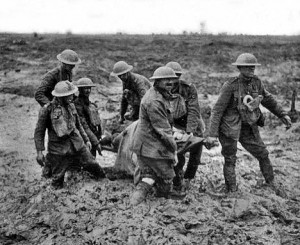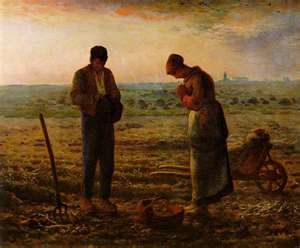Some little time ago – in October of this year – I happened to switch TV channels only to come across the ‘Daily Mirror’s’, ‘Pride of Britain’ Awards, then being shown on ITV. This type of programme, it must be said, is not usually my type of ‘watching’, but I stayed with it – and it was perhaps as well that I did, because, once one got away from the ‘hype’ and the ‘sugar-topping’, the programme contained something of very real value – something very much concerned with human behaviour – a person’s often selfless, brave and heroic conduct in the service of others. In many cases, such acts were carried out at considerable risk to the ‘hero’s’ own safety. fake watches
I recall one of the awards being given to a 6 years old child. Suffering from an acute form of lymphatic cancer, he was prompted to start a charity to help other children suffering from similar forms of the disease, simply by raising money to buy better toys for them to play with, whilst they were detained on the ward. His charity ‘grew’ and, apart from toys, funds are now being raised to provide for better equipment. A grandfather ‘lost’ his grandson some 30 years ago to leukaemia. Grieving, he began work to help other grandfathers – other grandchildren – giving of himself, selflessly, over all those years. His charity ‘took off’ and has now realised over £100M; he still leads the campaign, despite having suffered from a form of cancer himself. A young boy, 10 years of age, was instrumental in saving the life of his father; his father was attacked by a bull on his farm, at which the boy sounded the alarm, drove the farm tractor at the bull to protect his dad, thus saving his life, by putting his own life ‘on the line’. Then, there was the Pakistani father, who had just lost his son, murdered in the August riots in Birmingham. The man stood his ground, and made a public appeal on TV for the rioting and violence to stop. Commentators have said that his words were so powerful – so heart-searching – that they found their mark and people took notice; the rioting and violence did stop, from that moment on. A grandmother used her handbag to ‘batter’ and chase away six armed robbers on motor-bikes; she thought they were mobbing a young boy, when in fact they were about to rob a jeweller’s shop. A woman motorist came across a motorist stalled on a level crossing, when trains were coming from both directions. At risk to herself, this lady, got the stranded woman out of her car, and then drove her car off the railway lines, just in time to prevent a freight train from crashing into the obstruction. From the other direction a passenger train was coming and her actions saved the lives of many passengers on that train, in what could have been a major incident. Then, of course, we, the viewers, were invited to applaud the heroic efforts of soldiers in Afghanistan, many of whom have risked lives and limbs to protect their fellow soldiers-in-arms. Such heroics need no further explanation – just the sincere thanks of the Nation.
The programme contained many more examples of self-less acts of bravery. It is not possible, here, to describe them all – but all of them were built, essentially, on conduct in the service of others. It is true, also, that many such acts of service do not hit the headlines – or the Awards programmes – yet they, too, deserve commendation in equal degree. And, in my view, there is another very important factor they all have in common; they are all built on LOVE.
The love I speak of here is nothing to do with what we call love within marriage – though that is to be highly prized. Nor has it to do with ‘falling’ in love and the many other aspects of what we often call romantic love.
The love I am writing about is not easily defined though many attempts have been made over the long history of human behaviour. Many writers have preferred to ‘rest on their laurels’ by defining what it is not. Certainly, it is not to do with self and self-centredness, though that kind of self-love does exist for some. Real love, within human relationships, does not ask for anything in return for the act of giving – and here, that last word of the phrase, provides the clue to its real meaning – for love – real love – is all about GIVING.
In essence, it consists of “the gift of giving”, or of serving others, without the hope of reward or pay, the whole point being to try and improve that other person’s state of happiness and well-being. When one does the ‘right’ thing for others, one often receives something in return, but the gift of giving, in the first place, can never be influenced by possible reciprocity. Taken to the ultimate, of course, this gift of giving may, and often does, involve giving one’s life, in order to make that other person happy. It is often said that, “Greater love hath no man than this; that he should lay down his life for his friend.” The most valuable thing that can be given to another person is one’s own life. replica Rolex
 |
Jesus contemplates his suffering and death – then gives his life for us
Christ sacrificed his life, so that we might have life in us; similarly, when we express real love, we can give to others everything that is our life: our knowledge, interests, work, sadness, delight, possessions – anything that we are – anything that we have – everything that we are – everything that we have.
Most of us will know of perhaps the best definition. It comes from St. Paul’s First Letter to the Corinthians, Chapter 13:
“If I speak with the tongues of men and of angels, but do not have love, I have become a noisy gong or a clanging cymbal. If I have the gift of prophecy, and know all mysteries and all knowledge; and if I have all faith, so as to remove mountains, but do not have love, I am nothing. And if I give all my possessions to feed the poor, and if I surrender my body to be burned, but do not have love, it profits me nothing. Love is patient, love is kind and is not jealous; love does not brag and is not arrogant, does not act unbecomingly; it does not seek its own, is not provoked, does not take into account a wrong suffered, does not rejoice in unrighteousness, but rejoices with the truth; bears all things, believes all things, hopes all things, endures all things. Love never fails;
St. Paul goes on to speak about other closely connected aspects and then concludes with the famous line:
“But now faith, hope, love, abide these three; but the greatest of these is love.
God loves all of us – every one – with his infinite love, and his love is absolute. He made us to love him and to serve him – serve him by keeping his will, keeping his commandments, of which there are only two, effectively: that we should love him, (and no other ‘god’) – and that we should love each other, for his sake. And if we love Him in this way, then our reward will be great in heaven.
 |
No Greater Love
In John 15:12-13: we read:
“This is my commandment, that ye love one another, as I have loved you…. And again: “…. greater love hath no man than this, that a man lay down his life for his friends.”
Socius
(In sending out this blog by e-mail, ‘Word Press’ distorts the original formatting of the document. Readers are, therefore, advised to visit the website www.stmarysblog.co.uk should they wish to read it in its intended format).



![2361583607_100e46ed96_z[1]](http://176.32.230.2/stmarysblog.co.uk/wp-content/uploads/2011/11/2361583607_100e46ed96_z11-240x300.jpg)

